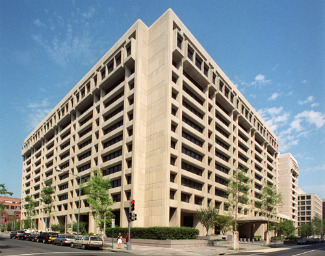Sustainable de-growth: an alternative to sustainable development?

Sustainable de-growth is the transition to a smaller economy with less production and consumption. A new study has explored its origins and compared it to sustainable development. The study found that to become a viable alternative to sustainable development, ‘de-growth’ needs to be more clearly defined, and its implications for employment need to be considered very carefully. In the latest issue of DG ENV News Alert, the European Commission Directorate General for Environment refers to the results of a study carried out with the participation of Joan Martínez Alier.
The concept of sustainable de-growth has been attracting interest. There is little agreement on international targets on greenhouse gas emissions and other targets, such as UN Millennium Development goals, look increasingly unachievable. Alternative policy approaches are therefore being considered. Currently sustainable development is the favoured approach, which aims to address environmental concerns whilst promoting economic growth. Sustainable de-growth has at its core a downscaling of economy and believes that economic growth, even if disguised as sustainable development, will lead to social and ecological collapse. It proposes that decreasing the size of resource flows is the only way to ensure resources are not depleted and this must be coupled with strengthened social and ecological values.
The origins of sustainable de-growth are complex because it is both a Marxist-influenced intellectual concept developed in France and a grass-roots movement developed in Northern countries. The latter is based in ecological economics and proposes a decrease in consumption in countries that exceed their allowable ecological footprint. Although the concept of sustainable de-growth appears to be a theoretical alternative to sustainable development and one that might bring faster and more impressive results, its practical application needs careful consideration. De-growth cannot be simply ‘switched on’ and societies will find it very difficult to undergo the change. Adequate preparation and conditions are needed if it is to successfully lead to the changes it proposes.
Firstly, alongside the EU’s agreement to decrease CO2 levels, there should be targets for reducing environmental impact indicators, such as energy consumption, natural resources and land use. Accompanying this there should be research and analysis to understand the required conditions for reaching these objectives. For example, research into the profiles of societies, in terms of their levels of consumption and industrialisation. Secondly, inherent to sustainable de-growth is a reduction in GDP. This is likely to cause an increase in unemployment unless initiatives are in place to reduce the amount of working time by individuals, delink income from employment or develop formulas for a basic income1. An existing partial example of this is the case of European agri-environment measures which provide farmers with incentives linked to sustainable use of land instead of production. In general, the relations between de-growth, income, and employment need careful discussion.
However, GDP is not the only economic indicator and the concept of growth itself must be further defined and developed so that the meaning of ‘de-growth’ is clearer and more consistently understood. Currently it has different definitions depending on whether it is used by academics or grass roots organisations. There may also need to be more coherence in general between its proponents, for example, between conservationists, trade unions, agro-ecologists and peasant movements. Sustainable de-growth has an obvious disadvantage in that it confronts current powers in society. No important economic players, such as government leaders or private sector executives, would have an interest in considering a no-growth policy. Advantages in downsizing and improving the ethical aims of society need to be promoted in this respect.
European Comission DG ENV
References
Science for Environment Policy, DG ENV News Alert, 16 September 2010, Issue 209.
"Sustainable de-growth: Mapping the context, criticisms and future prospects of
an emergent paradigm". Martínez-Alier, J., Pascual, U., Vivien, F-D. & Zaccai, E. Ecological Economics. 69:1741-1747 (2010).

